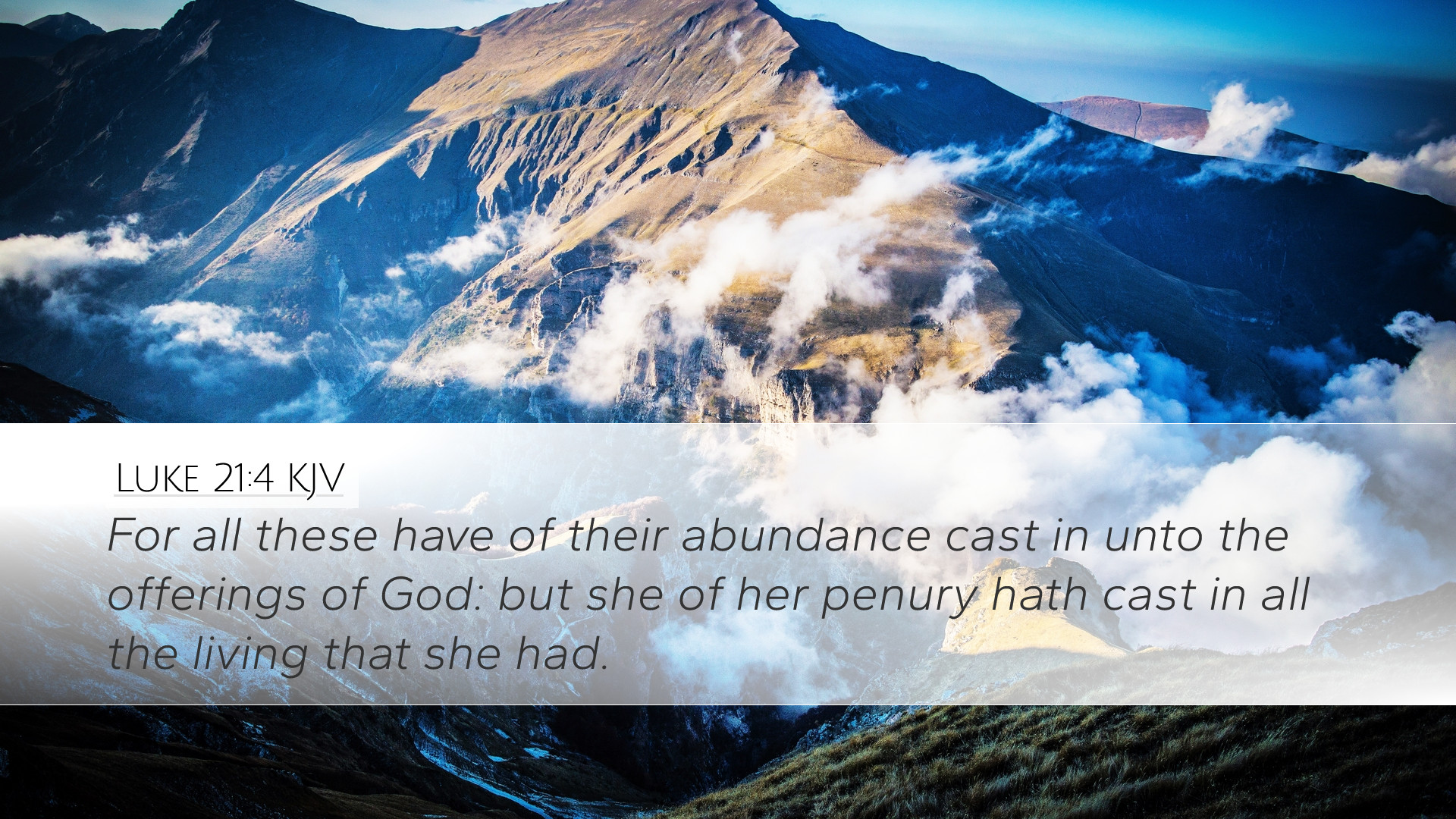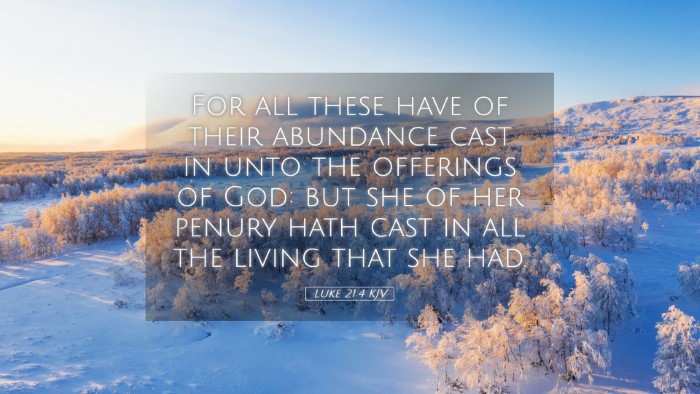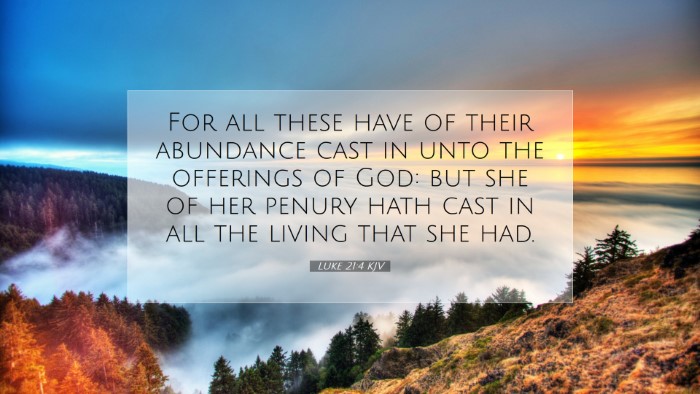Commentary on Luke 21:4
Luke 21:4 states: "For all these have of their abundance cast in unto the offerings of God: but she of her poverty hath cast in all the living that she had." This verse serves as a profound reflection on generosity, sacrifice, and the heart of true giving. Below, we summarize insights from respected public domain commentaries to strengthen the understanding of this scripture for pastors, students, theologians, and Bible scholars.
Contextual Background
In this passage, Jesus observes the people as they offer their gifts at the temple treasury. He highlights the contrast between those who give out of their surplus and a poor widow who gives her last two coins. This narrative emphasizes the spiritual significance of the heart’s intention rather than the sheer amount of the offering.
Insights from Matthew Henry
Matthew Henry comments that this widow’s offering represents true humility and devotion to God. He teaches that:
- Quality over Quantity: Henry emphasizes that the worth of a gift is determined not by its monetary value but by the spirit in which it is given. The widow's two mites, though meager, were profound because they represented her total commitment.
- God Values Sacrifice: He highlights that the widow gave "all the living that she had," indicating a total trust in God’s provision. Her gift exemplifies faith, demonstrating that she placed her trust in God’s ability to sustain her rather than her own resources.
- Contrast of Rich and Poor: The rich gave out of their abundance, which may not have required much sacrifice. In contrast, the widow’s offering was a significant sacrifice. Henry points out that earthly wealth can often blind one to the true nature of giving.
Insights from Albert Barnes
Albert Barnes also offers valuable insights, noting the following:
- Public vs. Private Giving: Barnes points out the public nature of the rich’s donations and the private decision of the widow to give all she had. The widow’s giving is not for show but stems from personal conviction and dedication to God.
- The Lesson of True Philanthropy: He notes that the rich may seem to contribute more, yet the widow gave the most in God’s eyes. In his view, the narrative challenges the perception of value in giving and encourages believers to examine the heart behind their offerings.
- God's Perspective on Giving: Barnes stresses that God observes the heart and intention of the giver. He provides a spiritual principle that God's measure of giving involves the sacrifice and love behind it, rather than the sheer amount.
Insights from Adam Clarke
Adam Clarke contributes additional depth by discussing:
- Historical Context: Clarke provides context regarding the temple treasury and the social implications of giving at that time. The widow’s act would be profound in a society that often equated wealth with divine favor.
- The Example of the Widow: He reflects on the widow’s bravery in giving her last resources, concluding that her act serves as a powerful testimony of faith and obedience to God. She exemplifies the ideal disciple who relies completely upon God.
- Exhortation to Generosity: Clarke encourages believers to follow the widow’s example in their lives, advocating for selfless giving and reliance on divine providence, even when circumstances seem dire.
Theological Applications
Analyzing the collective insights from these commentaries, several theological applications arise:
- Faith in Action: The widow’s example encourages believers to live out their faith through acts of trust and obedience, emphasizing that genuine faith manifest in actions that may appear small but carry significant spiritual weight.
- The Heart of Giving: This narrative indicates that God is more concerned with the condition of one’s heart than the size of one’s gift. True sacrifice and generosity come from placing one’s trust and love for God above all material possessions.
- Encouragement for the Marginalized: This passage serves as a source of hope for those who feel marginalized or impoverished, demonstrating that their contributions, though seemingly small, are invaluable to God.
Conclusion
In Luke 21:4, we witness a striking contrast between the ostentatious giving of the wealthy and the humble yet profound sacrifice of a poor widow. The insights derived from the commentaries of Matthew Henry, Albert Barnes, and Adam Clarke illuminate the broader implications of this passage for the Christian community. This scripture reminds us that in the economy of God, true giving is measured not by the magnitude of the gift but by the love and faith behind it.


